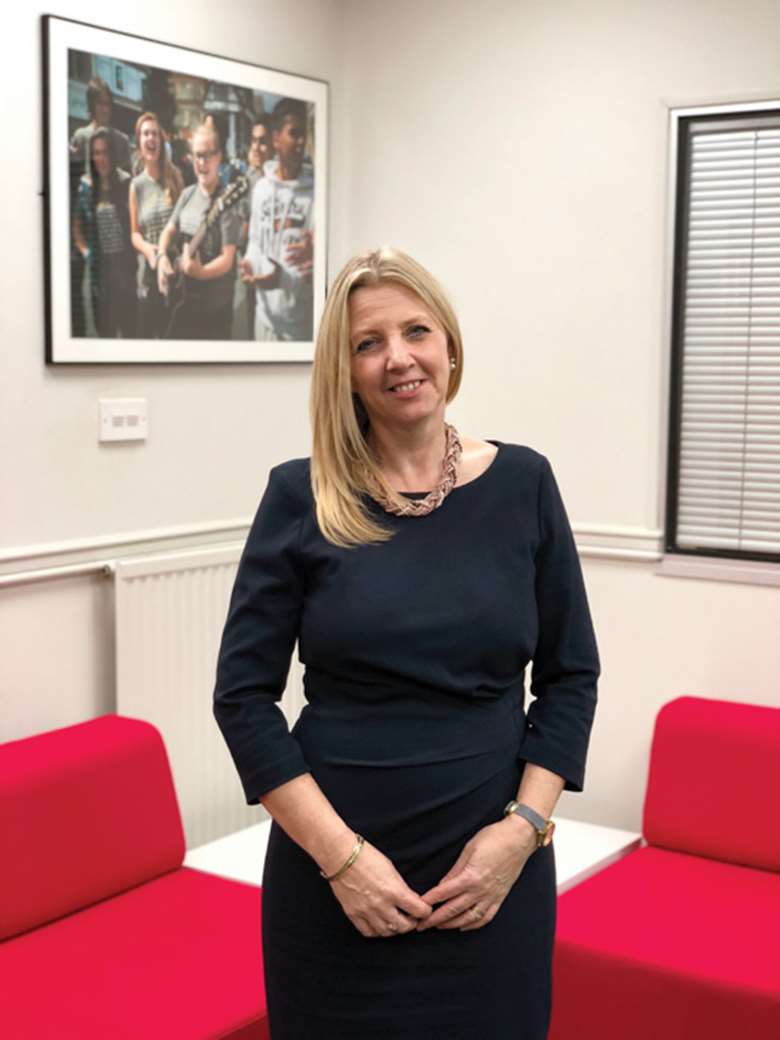Business education partnerships
Michelle Allison
Tuesday, November 26, 2019
Schools can help young people cope with the challenges they often face after education by forming partnerships with businesses, laying the foundations to better prepare students for the world of work.

In talking to businesses, we often hear about the challenges young people face when entering the workplace. Younger generations aren’t always prepared with so-called “soft skills” for life after school and being thrown into the work environment can be difficult.
At The Education Business Partnership (EBP) we work to bridge the gaps between employers, young people and schools by introducing them as early as possible. Our programmes, which start from Key Stage 1, bring local ambassadors and companies into the classroom and are often pupils’ first interaction with the business world. By providing enterprise challenges, mentoring opportunities and inviting businesses into local schools we build those key relationships and give young people an insight into careers from an early age. This sparks imagination and curiosity, even in the youngest of children.
Youth Employment UK’s annual Youth Voice Census report for this year found young people see the value of work experience and knowledge about different careers. Equally, some of the biggest barriers they face to finding employment can be lack of experience and not having or understanding the right skills for the job.
We want to see a more seamless approach between education and business and there are many ways that children’s services leaders can facilitate closer relationships. This is especially important for young people from disadvantaged backgrounds who often struggle to access work experience opportunities and social networks that can help them find a job.
- Help break down barriers. Earlier this year, the all-party parliamentary group for youth employment published the findings of its inquiry into employer support for youth employment. This calls for employers to actively engage their workforce in supporting youth employment by offering careers education, traineeships and work experience, and working with local enterprise partnerships. However, the biggest barriers were time, money and finding suitable opportunities.
There are a lot of things schools already do to help young people with careers such as inviting colleges, sixth forms and universities to meet students. Mirror this model by inviting businesses from different industries, local and national, into schools. - Build lasting relationships. Our experience tells us that making contact once is not enough and that building long-term relationships benefits both education providers and businesses alike. To form these lasting relationships, school and children’s services leaders need to keep in contact with business leaders. One of the best ways to do this is to identify one or two people in an organisation who understand your needs and keep them updated on the work you are doing and ways they can help.
With the help of business, students can gain all-important industry knowledge while companies not only get a chance to build their brand but gain insight into emerging generations and their working styles. - Starting early is key. When it comes to targeting young people with careers advice, the misconception is that you should go straight for secondary schools and those young people at the cusp of deciding what they want to do. In reality, we need to get in much earlier than that – starting key interactions from as early as Key Stage 1.
Engaging with children and young people from an early age builds their career aspirations while also introducing them to the industries, career markets and opportunities available in the local area. Keeping that momentum going as they move through education better prepares them for working life. When inviting business leaders into schools to engage with Key Stage 2 classes ask for some advice on how the content could be adapted for Key Stage 1. - Mentoring benefits all. Mentoring offers so much to young people including helping them understand how to act in a business environment as opposed to school or home – transferrable skills that apply across all workplaces. It can help give them an insight into careers they are interested in but also explore others they may not be aware of.
Businesses also gain new skills by sharing their expertise. While finding the time for staff to mentor can be a challenge, it is an important investment when it comes to developing the skills of our upcoming workforce. Many staff involved in mentoring schemes report it to be a hugely satisfying and fulfilling experience.
The EBP has supported businesses to mentor young people through programmes like Mission Mentor and Mini Exec Club. - Engage with your local Education Business Partnership. It can be tough to make those key connections between schools, businesses and young people – especially when it comes to young people from vulnerable groups – but school and children’s services leaders are key influencers in making this happen. There are many organisations – such as your local Education Business Partnership (EBP) – that can help you forge relationships by making introductions and providing opportunities for interaction. You can find out more about your local EBP via the Association of Education Business Professionals at www.theaebp.co.uk.




